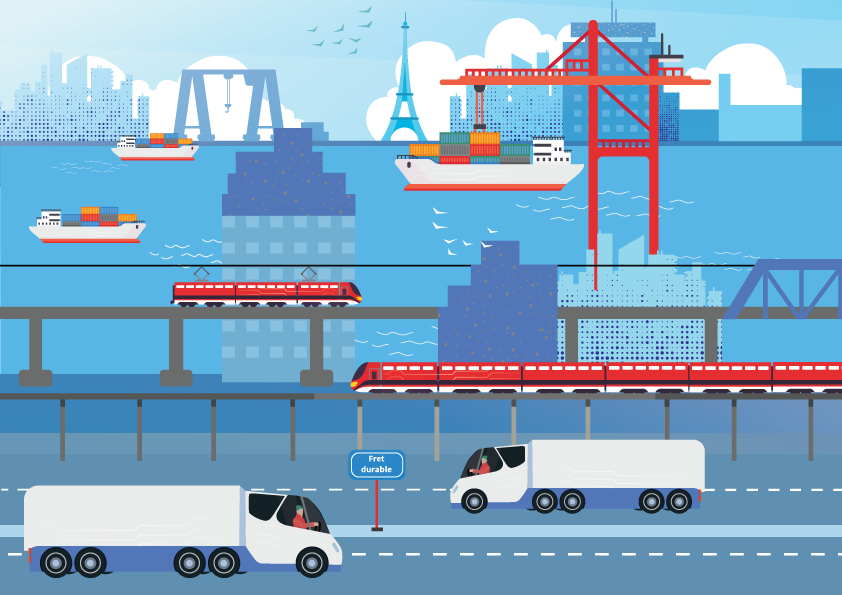
Comment décarboner le fret français d’ici 2050?
La présente étude analyse les mesures et les technologies qui peuvent contribuer à la décarbonation du fret terrestre français. Elle contient un exercice de modélisation des émissions et une analyse de coût du coût total de possession (TCO) pour les camions longue distance. Elle parvient à la conclusion que, selon les hypothèses actuelles, les véhicules à batteries électriques (BEV) en général, et ceux utilisant une infrastructure de caténaires suspendues (OC-BEV) en particulier, représentent les solutions les plus rentables pour atteindre un niveau zéro d’émissions de gaz à effet de serre (GES) « du puits à la roue » en France d’ici 2050.
En complément des mesures d’efficacité, un recours généralisé à la vente de véhicules à zéro émission (ZEV), une élimination progressive des ventes de camions roulant au carburant fossile d’ici 2040 et une interdiction de la flotte restante de ces même camions entraîneraient un niveau zéro d’émissions « du puits à la roue » d’ici 2050.
—
This study analyses measures and technologies which can contribute to the decarbonisation of the French inland freight sector. It comprises an emissions modelling exercise and a cost analysis for total cost of ownership (TCO) of long-haul trucks. It reaches the conclusion that, based on today’s assumptions, battery electric vehicles (BEVs) in general, and those using an overhead catenary infrastructure (OC-BEVs) in particular, represent the most cost-effective pathways to achieve zero well-to-wheel inland freight Greenhouse gas (GHG) emissions in France by 2050.
Efficiency measures such as increased modal shift, improved fuel efficiency of trucks and optimised logistics efficiency can contribute to reducing freight emissions, but are not sufficient to reach the French 2030 targets under the Stratégie Nationale Bas-Carbone (SNBC) and Effort Sharing Regulation (ESR), let alone fully decarbonise the French inland freight sector until 2050.
In addition to the efficiency measures, an ambitious uptake rate in zero-emission vehicle (ZEV) sales, a 2040 sales phase-out for trucks running on fossil diesel and a ban on the remaining fossil diesel fleet would lead to zero well-to-wheel emissions by 2050.
